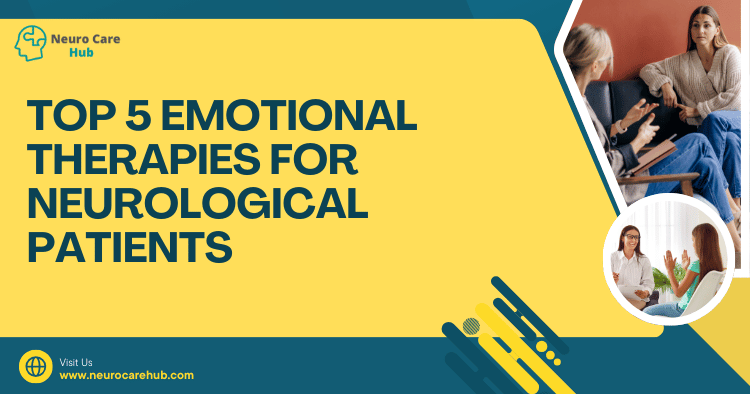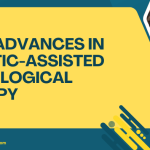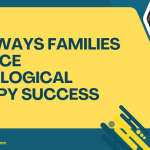Table of Contents
- Understanding Emotional Therapy
- 1. Cognitive Behavioral Therapy (CBT)
- 2. Art Therapy
- 3. Music Therapy
- 4. Mindfulness-Based Stress Reduction (MBSR)
- 5. Support Groups
- Also Look For
- FAQs
- Conclusion
Understanding Emotional Therapy
Emotional therapy, also known as psychological therapy, is crucial in the holistic treatment of neurological patients. Neurological disorders, such as multiple sclerosis, stroke, or traumatic brain injury, can lead to significant emotional challenges, including anxiety, depression, and emotional instability. Emotional therapy aims to address these challenges through various therapeutic approaches, helping patients regain emotional balance and improve their quality of life.
“Emotional therapy is not just about talking; it’s about healing the mind and spirit, giving patients tools to navigate their emotional landscapes.”
In this article, we explore the top five emotional therapies specifically designed for neurological patients, highlighting their benefits and how they can be integrated into treatment plans.
1. Cognitive Behavioral Therapy (CBT)
Cognitive Behavioral Therapy (CBT) is a structured, goal-oriented form of therapy that focuses on the relationship between thoughts, feelings, and behaviors. For neurological patients, CBT can help address the emotional and psychological impact of their condition.
Benefits of CBT:
- Identifying Negative Thought Patterns: CBT helps patients recognize and reframe negative thoughts related to their condition, reducing feelings of hopelessness.
- Building Coping Strategies: Patients learn practical skills to manage anxiety and depression, empowering them to tackle everyday challenges.
- Improving Emotional Regulation: By understanding their thought processes, individuals can better manage their emotional responses.
“Understanding your thoughts is the first step towards changing your feelings.”
How It Works:
CBT typically involves regular sessions with a trained therapist who guides patients through exercises and discussions tailored to their specific struggles.
For more information on CBT, visit the American Psychological Association.
2. Art Therapy
Art therapy combines the creative process with psychotherapy, allowing patients to express their emotions through various artistic mediums, such as painting, drawing, or sculpture. This therapy can be particularly beneficial for individuals who may struggle to articulate their feelings verbally.
Benefits of Art Therapy:
- Non-Verbal Expression: Art can provide a safe outlet for emotions that may be difficult to express through words.
- Enhanced Self-Esteem: Creating art can boost confidence and allow patients to take pride in their accomplishments.
- Stress Relief: Engaging in creative activities can be a form of relaxation, reducing anxiety and promoting emotional well-being.
“Art speaks where words are unable to explain.”
How It Works:
Sessions are typically led by a certified art therapist who guides patients in exploring their feelings through creative expression.
Learn more about art therapy at the American Art Therapy Association.
3. Music Therapy
Music therapy utilizes music to promote emotional, cognitive, and social well-being. For neurological patients, music therapy can be an effective way to enhance mood, improve cognitive function, and facilitate communication.
Benefits of Music Therapy:
- Emotional Connection: Music can evoke strong emotions and memories, providing a powerful medium for emotional exploration.
- Cognitive and Motor Skills: Engaging with music can improve cognitive function and motor skills, especially for patients recovering from strokes or brain injuries.
- Social Interaction: Group music therapy sessions can foster social connections, reducing feelings of isolation.
“Music can change the world because it can change people.”
How It Works:
Sessions may include listening to music, songwriting, or playing instruments, all guided by a certified music therapist.
For further reading on music therapy, check out the American Music Therapy Association.
4. Mindfulness-Based Stress Reduction (MBSR)
Mindfulness-Based Stress Reduction (MBSR) is an evidence-based program that incorporates mindfulness meditation and yoga to help individuals manage stress and increase awareness of the present moment. For neurological patients, MBSR can significantly improve emotional regulation and resilience.
Benefits of MBSR:
- Reduced Anxiety and Depression: Mindfulness practices can lower stress levels and improve overall emotional health.
- Enhanced Focus and Concentration: Mindfulness encourages patients to pay attention to their thoughts and feelings, improving cognitive function.
- Improved Quality of Life: By cultivating mindfulness, patients can find greater joy in everyday activities.
“Mindfulness isn’t difficult; we just need to remember to do it.”
How It Works:
MBSR programs typically last eight weeks and include guided meditation, yoga, and group discussions led by trained instructors.
To learn more about MBSR, visit Mindfulness-Based Stress Reduction.
5. Support Groups
Support groups provide a vital space for neurological patients to connect with others who share similar experiences. These groups offer emotional support, understanding, and shared coping strategies, greatly benefiting mental health.
Benefits of Support Groups:
- Shared Experiences: Patients can share their feelings and experiences, which can alleviate feelings of isolation.
- Learning from Others: Group members can exchange valuable coping strategies and resources.
- Building Community: Support groups foster a sense of belonging and community, which is crucial for emotional well-being.
“Alone we can do so little; together we can do so much.”
How It Works:
Support groups may be led by a facilitator or may be peer-led, meeting regularly in person or online to discuss various topics related to their conditions.
For support resources, check out the National Alliance on Mental Illness.
Also Look For
For additional insights into enhancing neuro care, consider exploring:
- Top 5 Benefits of Early Intervention in Neuro Care
- Top 5 Reasons Neuro Care is Essential in Modern Medicine
- Top 5 Ways Family Support Enhances Neuro Recovery
FAQs
1. How do I know which emotional therapy is right for me or my loved one?
Choosing the right therapy often depends on individual needs and preferences. It’s best to consult with a healthcare professional who can assess the situation and provide recommendations tailored to the patient’s specific emotional and neurological challenges.
“The best therapy is the one that resonates with the individual, providing them the tools to heal.”
2. Are these therapies covered by insurance?
Many insurance plans cover various forms of therapy, including CBT and group therapy. It’s important to check with your insurance provider to understand what services are covered.
3. How often should therapy sessions be held?
The frequency of therapy sessions can vary based on the patient’s needs and the type of therapy. Generally, weekly sessions are common initially, with adjustments made as progress is assessed.
4. Can these therapies be combined?
Yes! Many patients benefit from a combination of therapies. A multidisciplinary approach often leads to better outcomes, as different therapies can address various aspects of emotional well-being.
Conclusion
Emotional therapy is a vital component in the holistic treatment of neurological patients. The therapies discussed—Cognitive Behavioral Therapy, Art Therapy, Music Therapy, Mindfulness-Based Stress Reduction, and Support Groups—each provide unique benefits that can significantly enhance emotional health and quality of life.
“Healing takes time, and asking for help is a courageous step.”
By exploring these options, patients can find the support they need to navigate their emotional challenges and reclaim their lives.
For further reading and resources, consider visiting authoritative sites like the National Institute of Neurological Disorders and Stroke and the American Psychological Association. Always consult with healthcare professionals to tailor therapies to individual needs.






